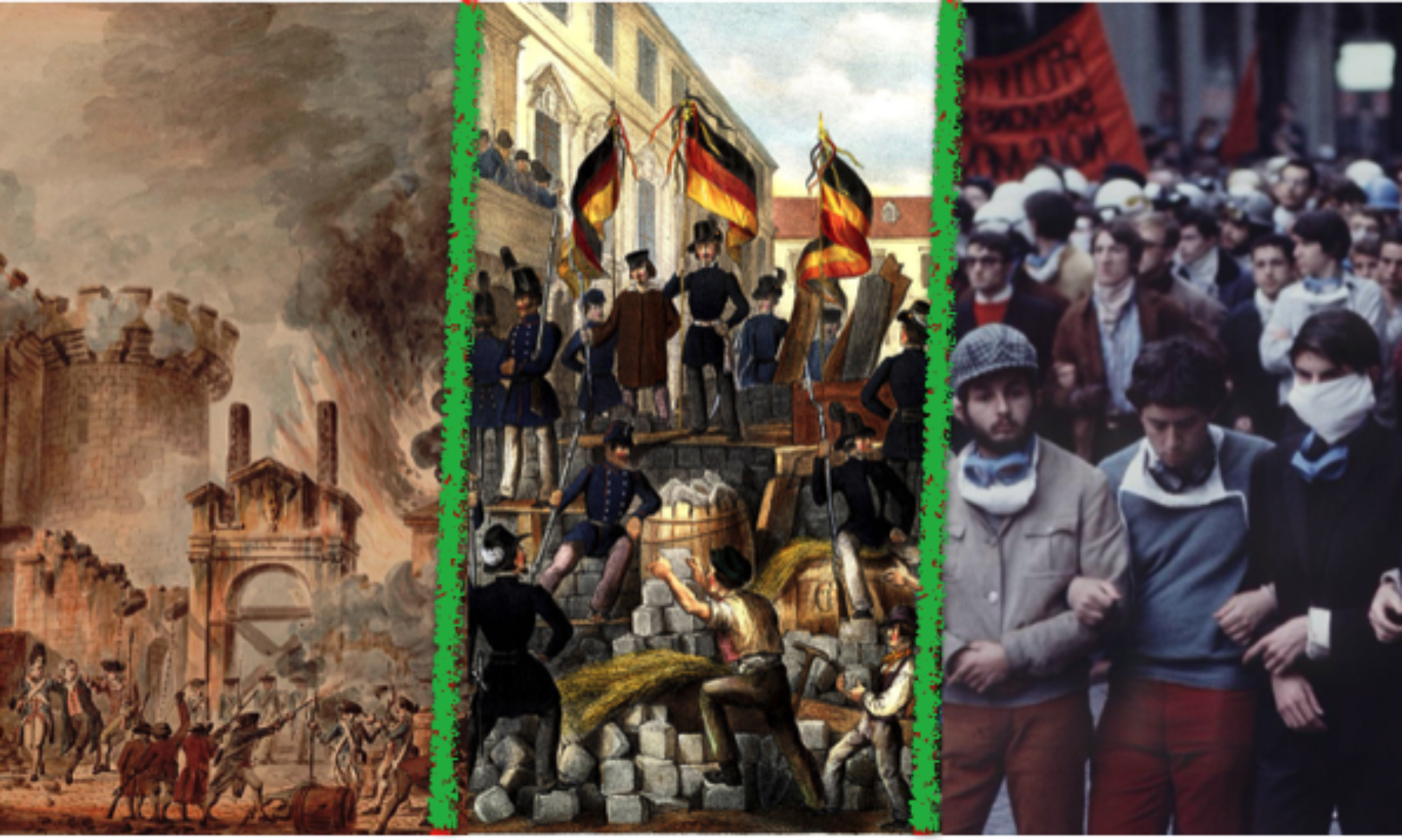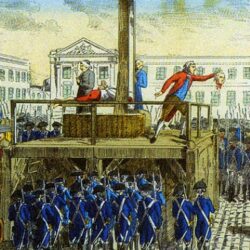In part of today’s reading in the Vigna piece, I the section that mentions unions and the way they interact with politics. Vigna says, “The moderation of the union leaders was linked to another tradition of the French labour movement: the separation between unions and politics.” (51). This is obviously very much not the case here in the United States. That is probably why I don’t see why there is a reluctance for unions to dabble a bit in politics. Politicians can help achieve change. At the same time, politics can be nasty, so maybe I can see both sides here. Is it effective for unions to become involved in politics?
The June Days
In Chapter 9, there is an interesting quote that caught my attention. Tocqueville says, “Another point that distinguished it from all other events of the same type during the last sixty years was that its object was not to change the form of the government, but to alter the organization of society” (136). Since this is a first-hand account, I don’t want to diminish or disregard this opinion, but I am not sure how much I agree with this. To me government is a part of “the organization of society.” Even if you argue against that idea, isn’t it safe to say that past conflicts in France were strongly influenced by class divisions. What are your thoughts on this?
Can it work?
This is not my first rodeo with the Communist manifesto, but one thing always comes to mind: Can it work? Chapter IV ends optimistically with “They openly declare that their ends can be attained only by the forcible overthrow of all existing social conditions. Let the ruling classes tremble at a Communistic revolution. The proletarians have nothing to lose but their chains. They have a world to win.” We could probably spend the rest of the semester talking about communism, but I think it boils down to ideas that might be too extreme for most of Europe. The ruthless class systems in the countries mentioned in the Manifesto were not created overnight. These are hierarchies that were built over many many years. Reforming them is quite a difficult task. What is the tipping point or issue that can spark a revolution of the sort the Manifesto is calling for? I know the question may seem simple, but I am curious what everyone else thinks about this.
Conflicts to the State
In our reading for today, Sperber says that “the government’s sphere of activity in the first decades of the nineteenth century was relatively limited, thus restricting the range of possible confrontations between the state and its subjects” (p 47). I really do not know if I am sold on this idea that increased government involvement led to friction with the masses. Was government that much more involved in 1848 compared to earlier in the century in places outside of France? I picked out this topic t because I really think it is worth a few moments of our time to discuss how this plays into the bigger picture of why revolutions happen.
Did it have to happen like this?
In the various readings, we see discontent for France on a continuous rise in the colonies. Like so many other positive changes that came from the revolution, the Directory began clawing back the liberal reforms of the National Assembly. By the time Napoleon came to power, the France was trying to reimpose slavery in the colonies. It is really strange to me that Napoleon worked to bring slavery back to the colonies. We know from the readings that the colonies were an integral part of the French economy, but that success relied on slavery for centuries. Reforming the system would have been a long and difficult process, but definitely worth it to end slavery. Even if Napoleon did not understand how terrible slavery is, he certainly would have known about the unstable nature of the colonies. Reading the Haitian Declaration of Independence, it is easy to see the damage of the decision to reintroduce slavery. We see phrases like “Independence or death” or “Eternal hatred of France” throughout the declaration. Overall, it is a really hostile document. Why would Napoleon think it is a good idea to reimpose slavery after it had been abolished? If the colonies were so important to France, I would think Napoleon would have worked harder to find a better solution than reimposing slavery.
War Between Brothers and Sisters
Desan’s piece on inheritance law and gender politics during the revolutionary period presents an interesting argument that the liberal actions of the National Assembly did include some rights for women, even if voting and political participation was still excluded. While I definitely understand the points Desan is communicating about these great new reforms that help women, one question still remains for me. If the reforms were so great, why were they largely reversed by the Directory? Desan mentions that “the Directory revised only the most extreme features of revolutionary civil law” (p 242). Is the issue of inheritance really so radical that the Directory had to reverse other similar reforms? I’m personally not sure I even buy this argument that revolutionary France was actually not that bad for women. What does everyone else think about all of this?
The Terror
For our last class, we read about a new age of freedom in France, free of the absolute monarchy of centuries past. While we all seemed to agree that the changes proposed may not have been as liberal or democratic as they were viewed by the National Assembly, it was still movement in the right direction. In today’s reading, we see France fall into the Reign of Terror, a departure from the “amazing” society that the revolution was supposed to create. Here’s my question: What went wrong? Although it may seem simple, I think this is something we need to talk about. Popkin mentions a few theories from historians at the end of Chapter 5. The one that mentions the “outgrowth of the movement’s utopian and unrealistic aspirations.” Was the government being unrealistic? Another interesting position Popkin mentions is that the Terror was a method to actually reduce the likelihood of even more violence. What does everyone think about that?

